In movie parlance, the foley artist is the guy (usually) who adds the tap of heels on a marble floor, the squeal of tires rounding a corner and all the other clicks, clacks and pops that often are folded into the sound mix.
The infinitely silly, unconscionably entertaining action film Unleashed earns most of its juice from the martial-arts star Jet Li, the eminent martial-arts choreographer Yuen Wo-ping and the fine British actor Bob Hoskins in full terrifying lather. But special mention too must be made of the film's excellent sound-effects team, which with a symphony of postsynchronous bone crunching and body thwacking has helped push the fight sequences to rare seat-jolting heights.
Unleashed has been ped-dled as the action movie in which Li flexes his acting chops, which is, to put it nicely, a load of hooey. One of the greatest of the current crop of movie martial artists, Li has an appealing on-camera presence, but his gifts have almost nothing to do with how persuasively he can put across an emotionally charged scene. His talent is for action, for hurling his compact body through the air in complexly choreographed routines with breathtaking grace and false ease. It is a talent that has not often been satisfyingly realized since 1998, when Li made the move from Hong Kong to Hollywood, and began bouncing around in one substandard flick after another (Cradle 2 the Grave, ad nauseam).
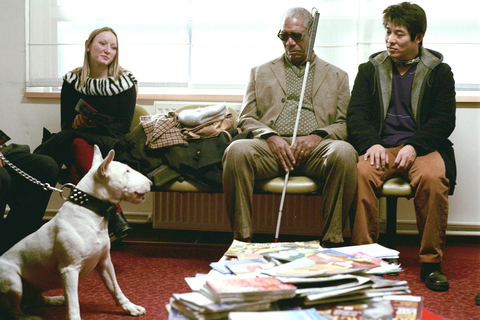
A few years back, the busy French director and producer Luc Besson, one of the most important action auteurs working today, produced one of Li's less egregious films, Kiss of the Dragon. Besson has done even better by Li with Unleashed. Directed by Louis Leterrier, who made a diverting action debut with The Transporter, and written by Besson, this new film gives Li ample opportunity to do what he does best: kick (and punch and garrote) with flair. Although it lacks the ambitious reach of Zhang Yimou's period epic Hero, one of Li's higher-profile pictures, Unleashed has a satisfying purity of form. Or, to put it somewhat differently, the story is stupid enough for you to concentrate on all the bodies in fast, furious motion.
The premise is ridiculous: Li plays Danny, a killing machine who, since childhood, has been kept on a literal leash by Hoskins's Glasgow gangster, Bart. Given all the noisy violence, it would appear that Glasgow is an immodestly dangerous city, a bit like the old American West with a touch of the new Moscow. In such environs, where the police are all but invisible, it poses no great surprise that not a single child welfare agent intervened when Bart first fixed a dog collar around Danny's neck as if he were a junkyard hound. (In France, the film carried the blunt title Danny the Dog, which may have been thought objectionable to sensitive American ears, but neatly sums up the film's crude premise and instrumental design.)
Depending on your sense of humor and how seriously you take your action, the story is either the least of it or the best part: during one of Bart's routine sorties, Danny happens across a blind piano tuner, Sam (a demonstrably amused Morgan Freeman), who takes him under kindly wing. Before you know it, Danny has escaped from Bart and is learning how to eat with a fork; rather less plausibly, he is also batting his eyelashes at Sam's stepdaughter (Kerry Condon). How Besson conjured up this particular nonsense remains unanswered. Happily, Danny's idyll is but temporary and it isn't long before the bad guys come running, the bodies start flying and the bones begin crunching, unleashing -- hallelujah -- Li from the bonds of narrative comprehensibility. Unleashed is predictably violent, with a lot of body-to-body hard action, and some gun and sword play.
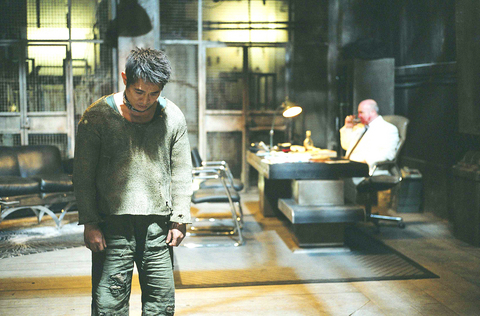
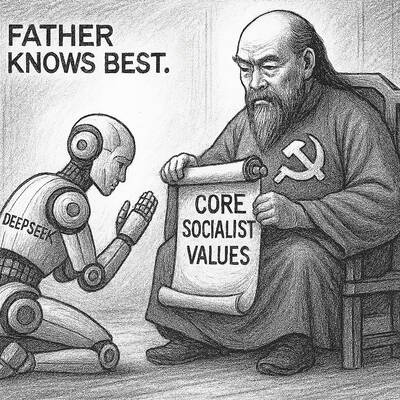
It’s Aug. 8, Father’s Day in Taiwan. I asked a Chinese chatbot a simple question: “How is Father’s Day celebrated in Taiwan and China?” The answer was as ideological as it was unexpected. The AI said Taiwan is “a region” (地區) and “a province of China” (中國的省份). It then adopted the collective pronoun “we” to praise the holiday in the voice of the “Chinese government,” saying Father’s Day aligns with “core socialist values” of the “Chinese nation.” The chatbot was DeepSeek, the fastest growing app ever to reach 100 million users (in seven days!) and one of the world’s most advanced and
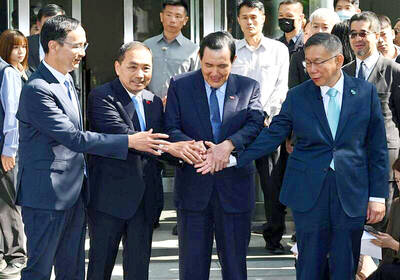
Has the Taiwan People’s Party (TPP) changed under the leadership of Huang Kuo-chang (黃國昌)? In tone and messaging, it obviously has, but this is largely driven by events over the past year. How much is surface noise, and how much is substance? How differently party founder Ko Wen-je (柯文哲) would have handled these events is impossible to determine because the biggest event was Ko’s own arrest on multiple corruption charges and being jailed incommunicado. To understand the similarities and differences that may be evolving in the Huang era, we must first understand Ko’s TPP. ELECTORAL STRATEGY The party’s strategy under Ko was
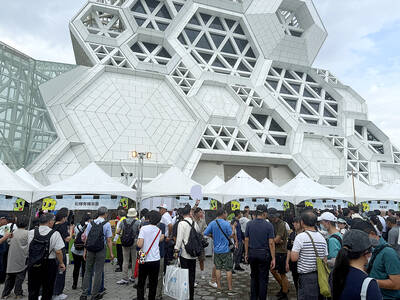
The latest edition of the Japan-Taiwan Fruit Festival took place in Kaohsiung on July 26 and 27. During the weekend, the dockside in front of the iconic Music Center was full of food stalls, and a stage welcomed performers. After the French-themed festival earlier in the summer, this is another example of Kaohsiung’s efforts to make the city more international. The event was originally initiated by the Japan-Taiwan Exchange Association in 2022. The goal was “to commemorate [the association’s] 50th anniversary and further strengthen the longstanding friendship between Japan and Taiwan,” says Kaohsiung Director-General of International Affairs Chang Yen-ching (張硯卿). “The first two editions

It was Christmas Eve 2024 and 19-year-old Chloe Cheung was lying in bed at home in Leeds when she found out the Chinese authorities had put a bounty on her head. As she scrolled through Instagram looking at festive songs, a stream of messages from old school friends started coming into her phone. Look at the news, they told her. Media outlets across east Asia were reporting that Cheung, who had just finished her A-levels, had been declared a threat to national security by officials in Hong Kong. There was an offer of HK$1m (NT$3.81 million) to anyone who could assist